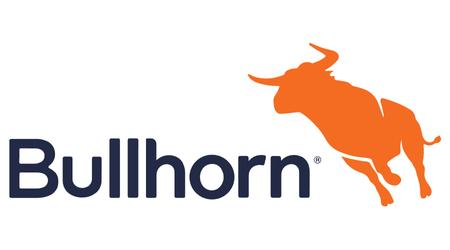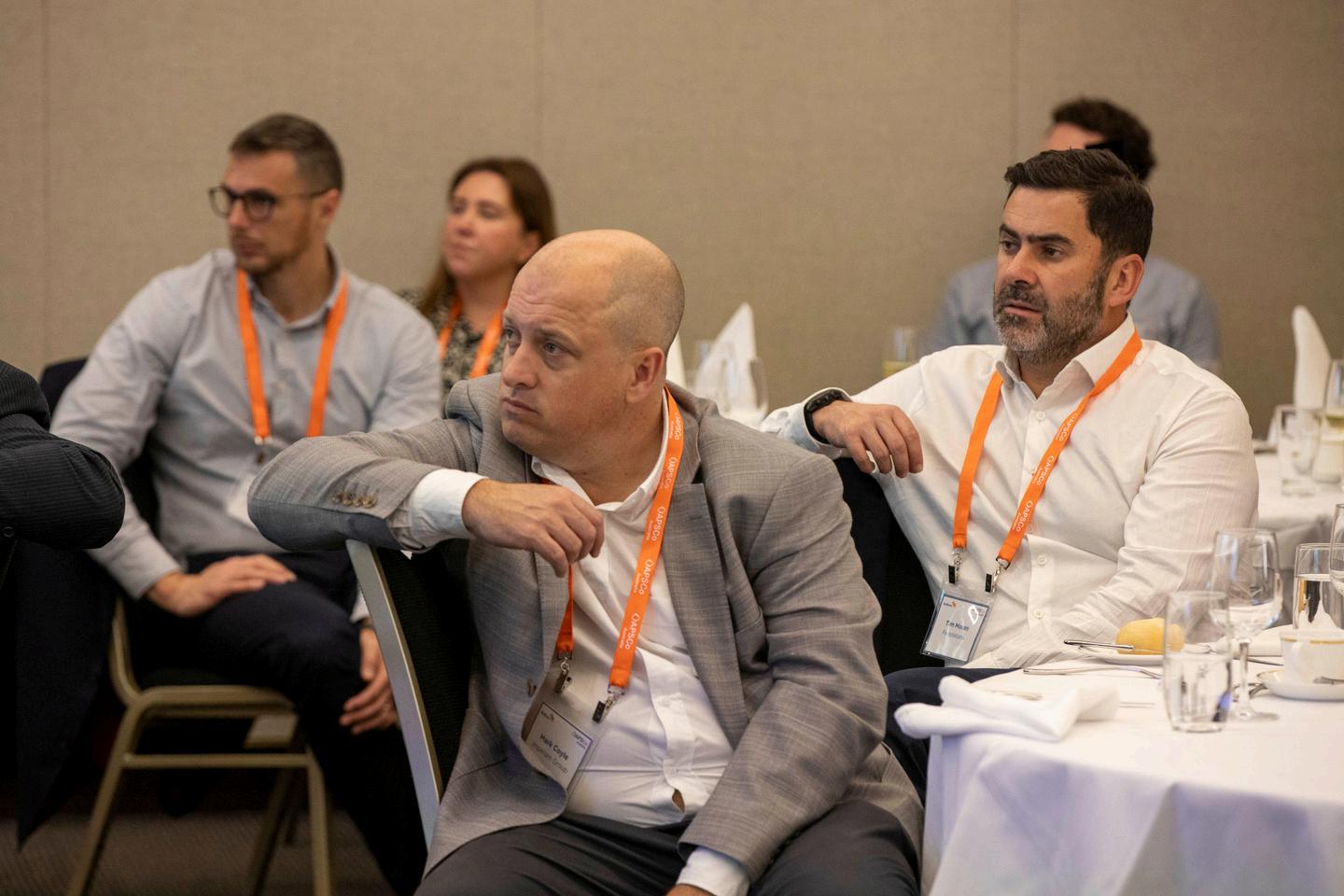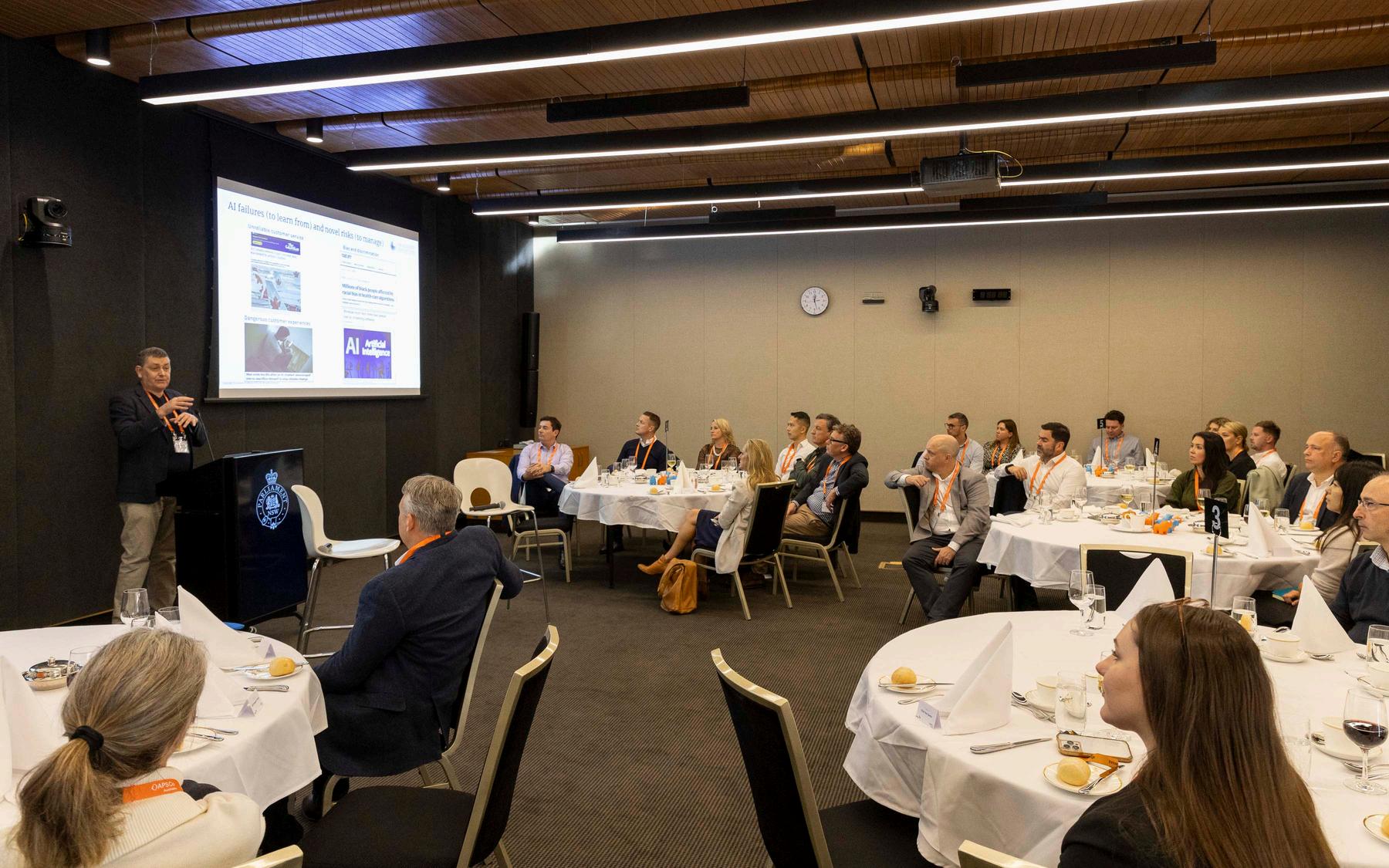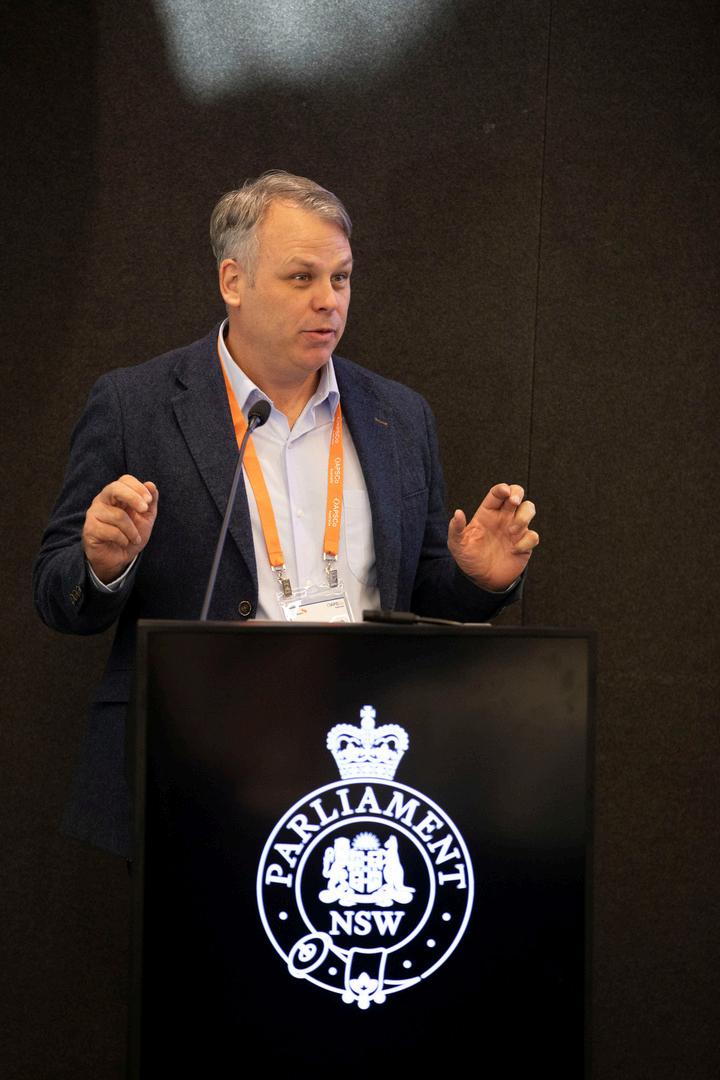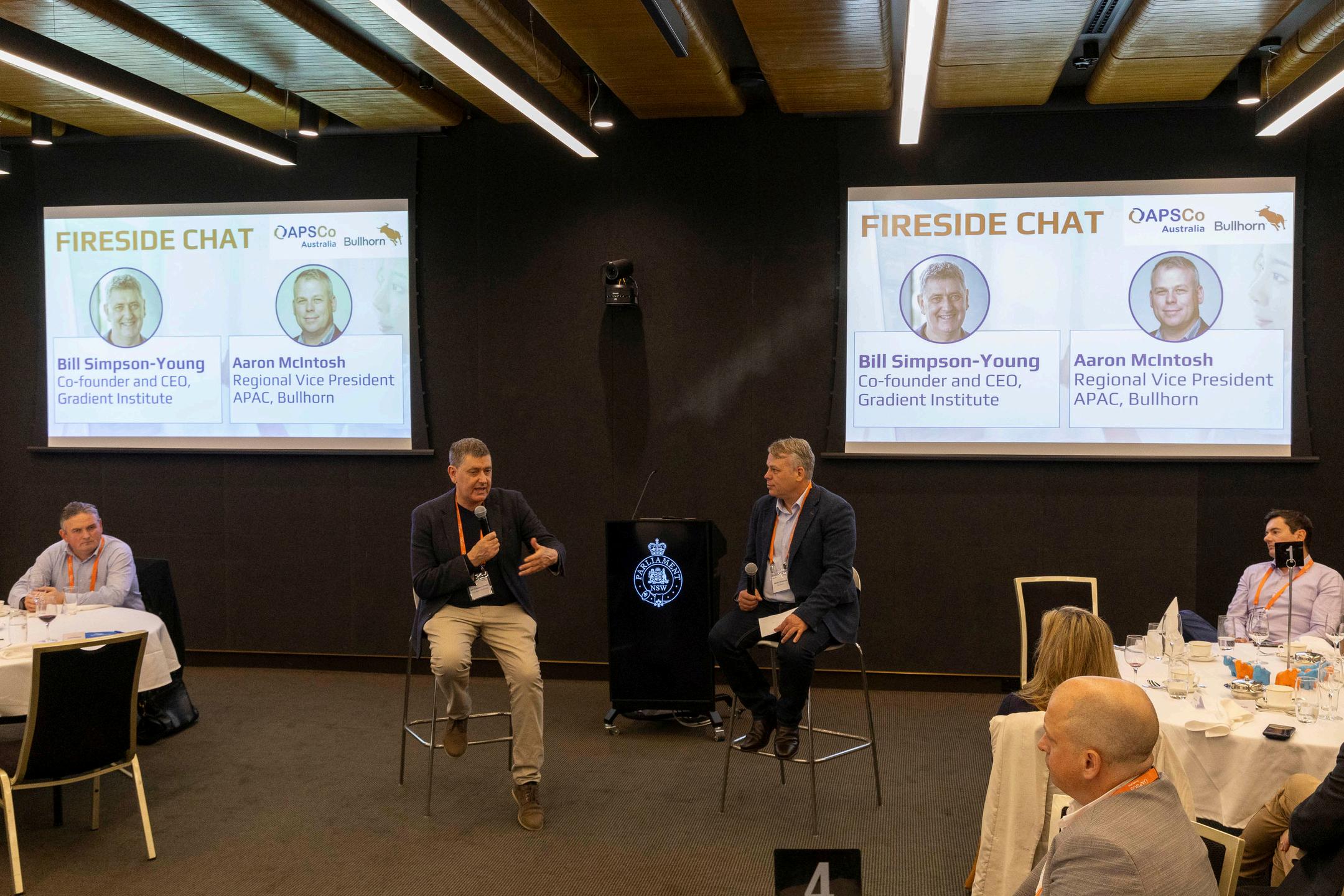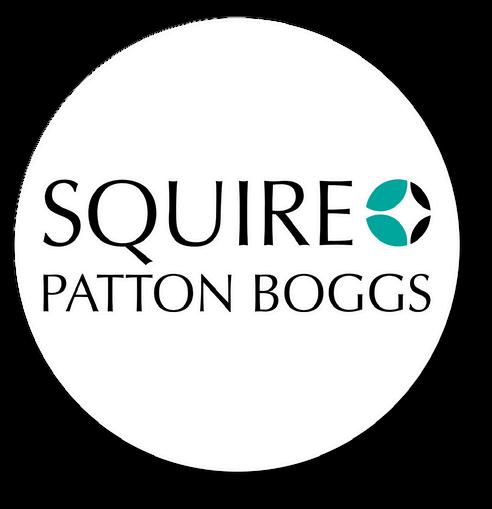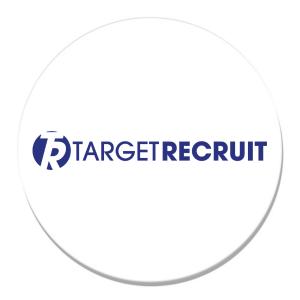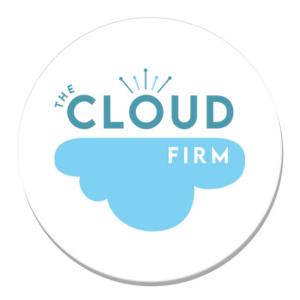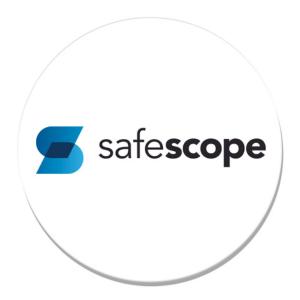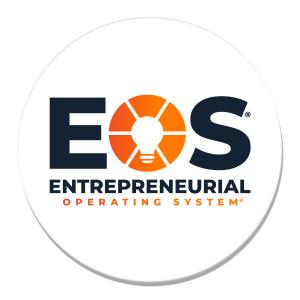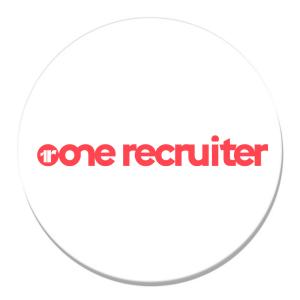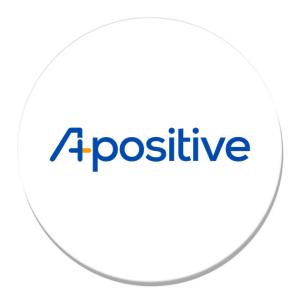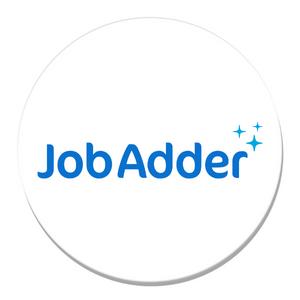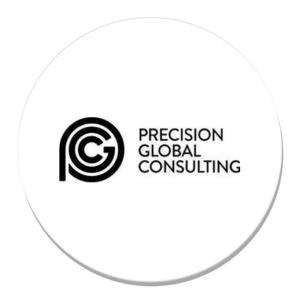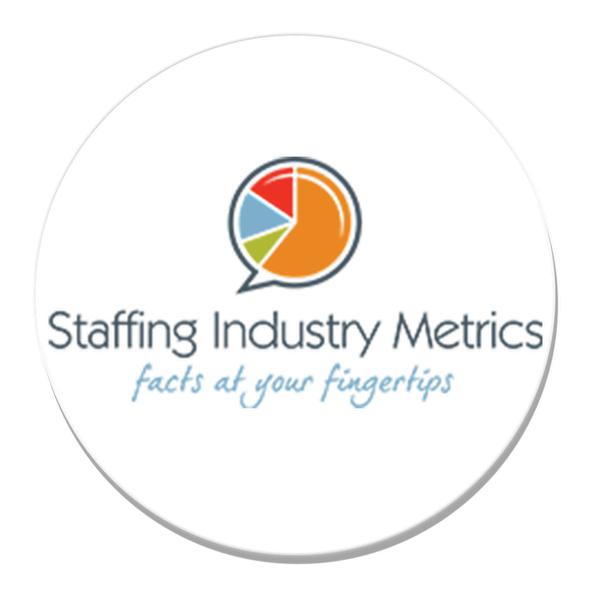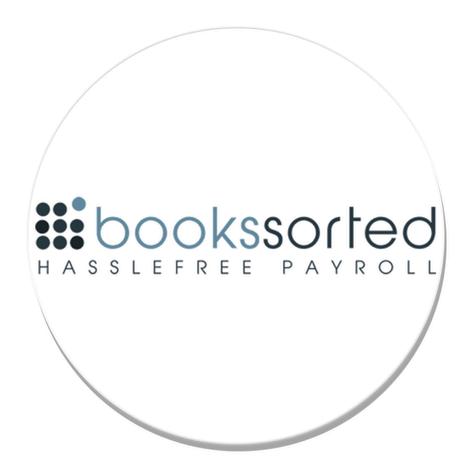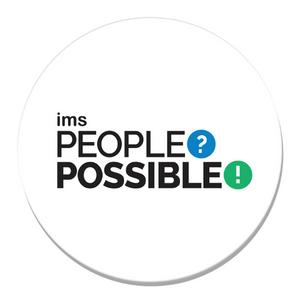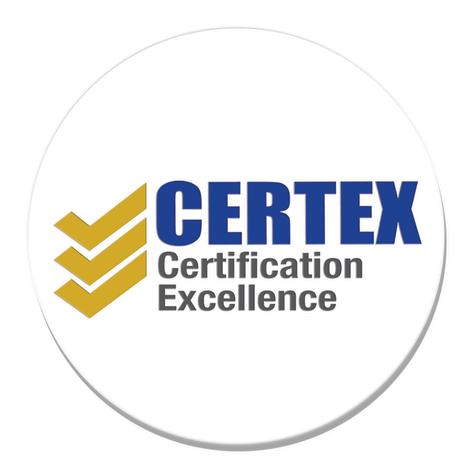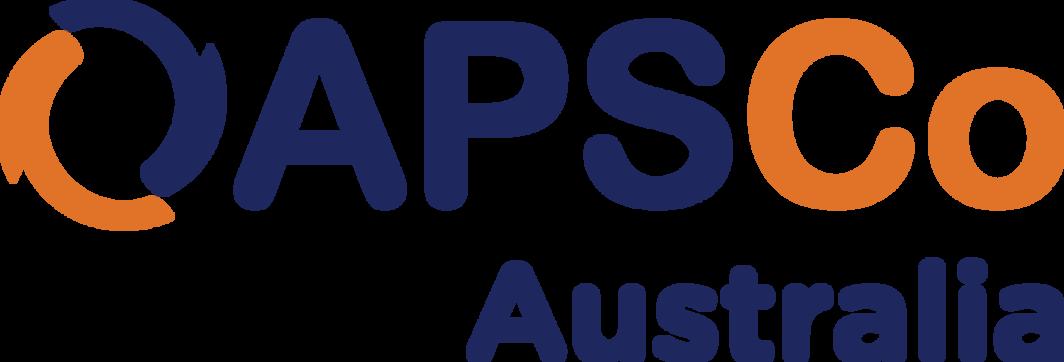RECRUITMENT RECRUITMENT&&CO CO
Spring Issue 2024 Spring Issue 2024












Spring Issue 2024 Spring Issue 2024













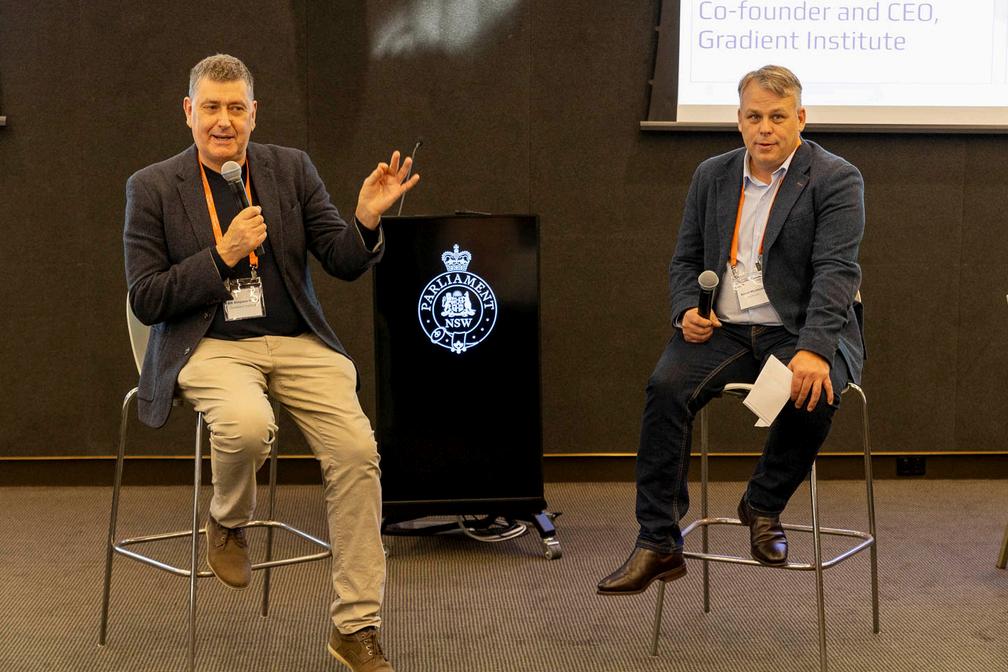



Editorial
Advertising
Membership
Ensuring we stay relevant is a large part of the daily conversations I have with my team at APSCo.

Lesley Horsburgh Managing Director
APSCo Australia
As we continue to push through a challenged market, understanding what’s keeping our members awake at night is key to how and what we build into membership within APSCo and for me is an intrinsic part of the whole Association model.
While our foundations will always be built on offering guidance and support around compliance, legislative change and best practice, engaging our members across developing issues, market trends and progressive, forward thinking ideas will continue to be a growing focus for us as we all turn our attention to 2025. Our upcoming webinars and training programs are a true reflection of this.
Of course, there’s always key dates in the APSCo calendar that our members look forward to every year – our Gala Dinner is one of them and with celebrations just around the corner it’s always a great way to highlight the enormous achievements and quality businesses that exist in the Australian professional staffing market.
This year we’ve added ‘Partner of Year’ to the category line up – our partners are a huge part of what we do and so giving nod to their contribution and allowing our members to cast their vote for the winner was an easy decision
I wish all of our finalists the best of luck and thank each and every firm that took the time to enter this years Awards for Excellence
I hope to see you all in Melbourne
LESLEY
HORSBURGH
APSCo Australia Managing Director
The 2024 Work Trends Index Report from LinkedIn and Microsoft reveals a significant shift in AI utilization in Australian workplaces. With 84% of knowledge workers using AI, the demand for AI-driven solutions is clear. However, while 80% of Australian leaders recognize the need to adopt AI to stay competitive, 70% worry about the lack of a strategic implementation plan.
Adam Gregory, LinkedIn’s Senior Director of ANZ Talent & Learning Solutions, emphasizes the importance of a continuous learning culture to integrate AI effectively
He states, "If you want to figure out how AI can make a real impact on your business, the best way is to enable your teams to start testing specific use cases and the biggest thing that will set any organisation up for success is building a culture of continuous learning "
The report highlights that AI power users save an average of 30 minutes per day and enhance their workflow, with 85% starting and ending their days with AI tools
Businesses not embracing AI risk missing out on time savings and innovative opportunities
Organizations that adopt AI report higher efficiency, creativity, and job satisfaction among employees
MinterEllison exemplifies this trend, using AI to enhance learning and development programs "Generative AI is increasing people's productivity and efficiency, but also improving people's experience in the workplace by freeing up time for more interesting work," says Kate Booth, Head of Learning and Development at MinterEllison
Similarly, UniSuper and RMIT University leverage AI to streamline recruitment processes Luke Collard, UniSuper's Head of Talent Acquisition, notes, "The first win is automation – getting rid of some of those administrative tasks, as well as being able to refine content
We're starting to use it for advert writing, writing our position descriptions and interview guides "
Tania Downling, RMIT's Head of Talent Acquisition, shares, "Using LinkedIn's AI for InMails has saved us time significantly
It allows quick drafting and customisation of emails, enhancing our engagement with prospective candidates "
These examples underscore the transformative potential of AI in the workplace and the need for strategic implementation to harness its full benefits
Dive into a free LinkedIn Learning’s course, "AI & the Workforce: A Deep Dive into the Future of Work," to explore how AI is impacting jobs and skills
Read more here and view the 2024 Work Trends Index Report here
The Access Group, a leading provider of business management software to mid-market organisations in the UK, Ireland, USA and Asia Pacific, announced that it has reached an agreement to acquire Onboarded, an Australian-based technology provider of recruitment onboarding software.
As part of this acquisition, The Access Group has reached an agreement to acquire Onboarded’s sister company, smartAI, a personalised conversation platform for recruiters.
This furthers Access’ ambition to help recruiters globally to benefit from usable AI daily
Through this acquisition, Access Recruitment will be able to offer its customers the ability to streamline and speed up the onboarding process and ensure candidates are fully compliant. 84% of candidates using the Onboarded platform complete their onboarding within 24 hours.
Access Recruitment and Onboarded together will offer customers a suite of features that will deliver a fully customisable digital platform which onboards candidates and employees in minutes with one link and sends the information back to the CRM.
Access’ advancements in AI and automation within the recruitment sector reinforce the Group’s commitment to making innovative technology accessible to all
Raj Soni, Founder of Onboarded and smartAI, said: “Since founding Onboarded in 2019, our mission and vision have been to build trusted connections between workers and businesses.
Joining forces with Access represents an exciting new chapter in our journey, making it even easier for more people—globally—to onboard seamlessly into the workplace.”
Emma de Sousa, Group Managing Director, Access added: “We are delighted to welcome Onboarded and smartAI to the Access family, and we look forward to working alongside the Onboarded and smartAI teams to deliver an exceptional software experience that lightens the load for recruitment professionals and creates a seamless onboarding process for candidates changing roles or entering the world of work.”
For more information on Access Recruitment, visit www theaccessgroup com/en-gb/recruitment/form/contact/
Bullhorn is thrilled to announce that Bullhorn Engage Sydney 2025 is set to return to the iconic Royal Randwick Racecourse to bring together the APAC recruitment industry and the Bullhorn team for a day of learning and networking.

Mark your calendars for 6 March 2025 and get ready to experience an event full of insights about today’s recruitment market and how to use technology to move forward together.
Why Engage Sydney 2025 will be unforgettable:
1 A premier venue upgrade: After the overwhelming success of last year’s event, we’re excited to move to the bigger and better WINX Stand at Royal Randwick Racecourse
This state-of-the-art venue will offer an enhanced experience, with exceptional views and world-class facilities that perfectly complement the excitement of Engage Sydney.
2. Dive into the future with AI: This year, our focus is on artificial intelligence (AI). As technology continues to evolve rapidly, we’ll explore how AI is shaping the future of recruitment. Get ready to gain insights into the latest innovations and trends that are transforming our industry.
3. Learn from the best: Engage Sydney 2025 will feature talks from industry leaders who are at the forefront of tech innovations. They’ll share their knowledge on emerging trends, offer valuable insights, and discuss best practices that can help drive your success.
4 Network with peers, Marketplace partners, and the Bullhorn team: This is a fantastic opportunity to connect with other professionals, industry peers, and marketplace partners Exchange ideas, forge new relationships, and build a network that will support and inspire your career growth
Engage Sydney 2025 promises to be an incredible event that combines cutting-edge technology, expert insights, and unparalleled networking opportunities Join us in the WINX Stand at Royal Randwick Racecourse on 6 March 2025, and be part of the conversation that’s shaping the future of recruitment
Stay tuned for more updates and details, and don’t forget to secure your tickets!
See you at Engage Sydney 2025!
Sydney, Tuesday September 10, 2024 – Talent RISE is pleased to announce that $89,172 has been raised in the 2024 ‘Step Up Challenge’ fundraising initiative which is aimed at helping young people with challenges to finding employment.
Funds raised will go towards three life-changing initiatives.
These vital funds will be used for three lifechanging initiatives. These are:
EnterTech Program: Funding young people through work placements and training to acquire required skills and experience to provide a clear employment pathway for young people into tech roles.
Paid Internship Scheme: Paid internships can be life-changing but are often impossible to secure for the young people we work with. This scheme will fund internships which provide critical experience to help young people gain confidence and secure employment.
Equal Access Program: This program will support young people from refugee, asylum seeker, or Indigenous backgrounds by covering the cost of training (alongside RISE work readiness support) to provide a platform for future security.
In FY24, Talent RISE supported 554 young people with training and coaching, and placed 61 into meaningful employment.
On the fundraising efforts, Karen Graham, Talent RISE CEO ANZ said, “Raising $89,172 is incredibly heartwarming and a fantastic result that will help so many. Over the last 12 months the Talent RISE team have helped countless young people and will now be able to help many more because of the generosity of others.

As in previous years, all of Talent RISE’s overhead costs are covered which means every cent that is raised goes directly to support young people facing barriers to employment.”
Launched in 2014, Talent RISE is the charitable foundation of Talent – a leading global technology and digital recruitment specialist. To date, Talent RISE has engaged more than 5,000 young people through workshops and mentoring and has successfully placed over 500 into meaningful employment.
According to the ABS, the youth unemployment rate in Australia remained at 9.6% in June 2024. This figure, however, remains too high and is more than double that of the general population of 4.0%.
According to Stats NZ, in the March 2024 quarter, the seasonally adjusted proportion of people aged 15-24 years who were not in employment, education, or training (NEET) was 12.4%, up from 10.3% compared to March 2023.
Over the years, the Talent and Talent RISE global team has volunteered over 50,000 hours to give back to charities and community projects and are proud to add the ‘Step Up Challenge’ to the list.









JV Recruitment
MAP Talent Group
The Network


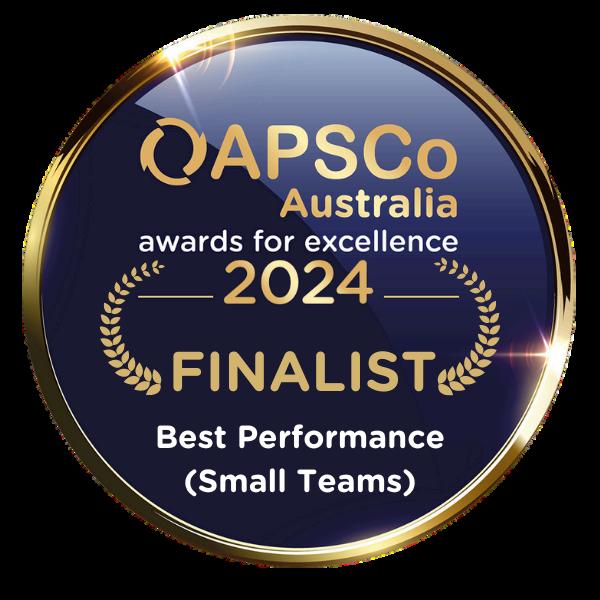
Cornerstone Medical Recruitment

Keane Consulting
Recruitment Sorted Recruitment Hive
Sapture International
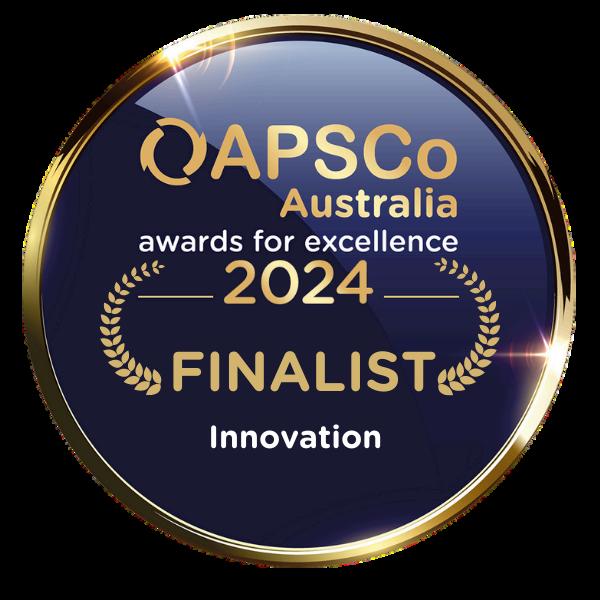

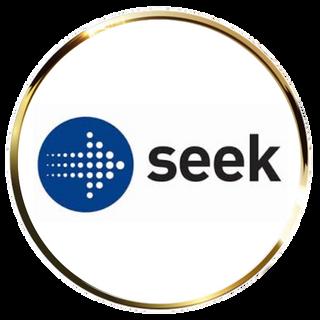
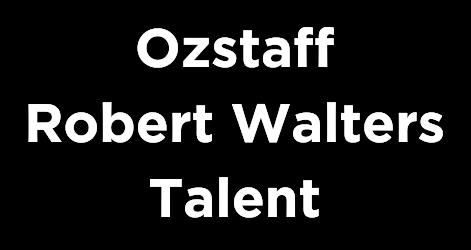


1Medical Medacs Healthcare Whizdom




Robert Walters
Sapture International Smith & Co


ACRWORLD Cornerstone Medical Recruitment
Launch Group

SustainHealth Recruitment






Chandler Macleod Launch Group
Robert Walters Whizdom



Aaditya Chavda
John Camm
Liam Felloni
Michael Higgins
Mohammed Samsam

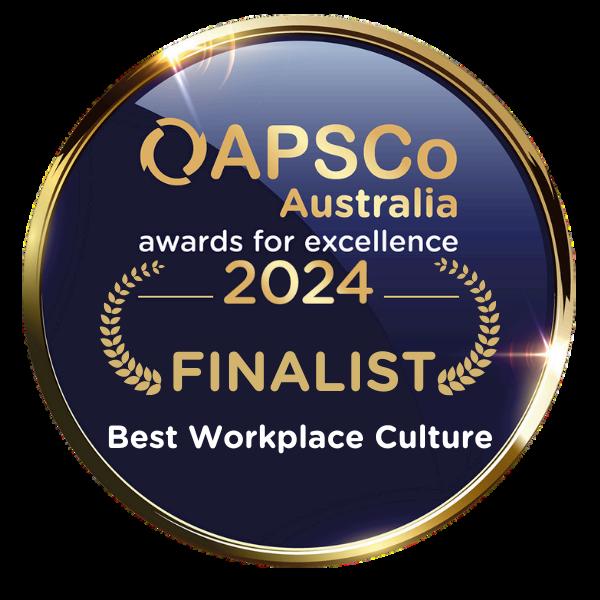
Horner Recruitment
HorizonOne Recruitment
Talent
Troocoo
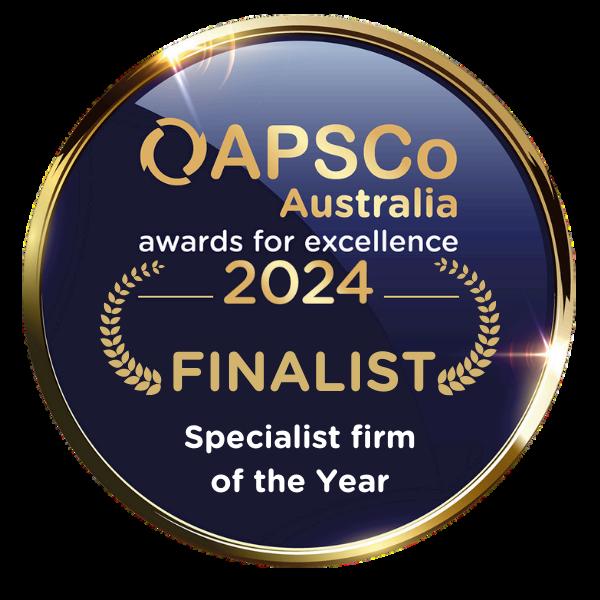
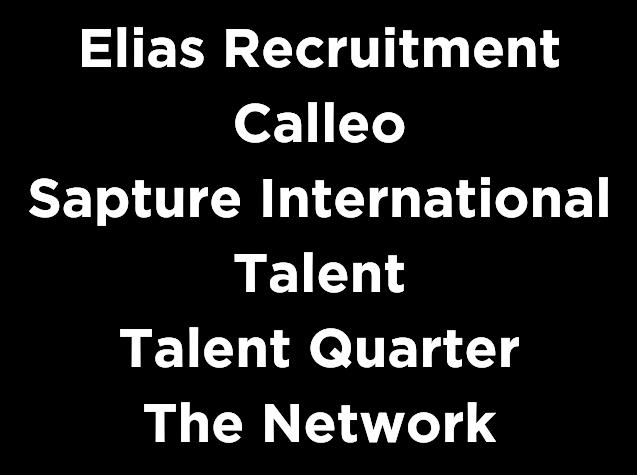


Gadens
IMS People Possible
Sovereign Private Squire Patton Boggs WorkPro
Younique Coaching
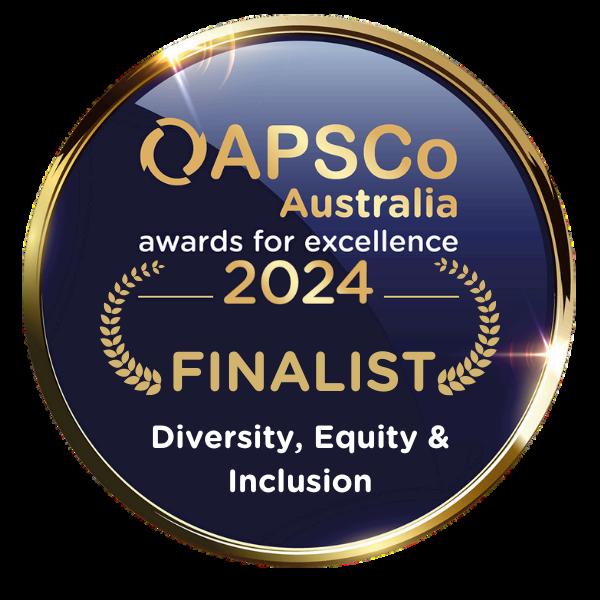
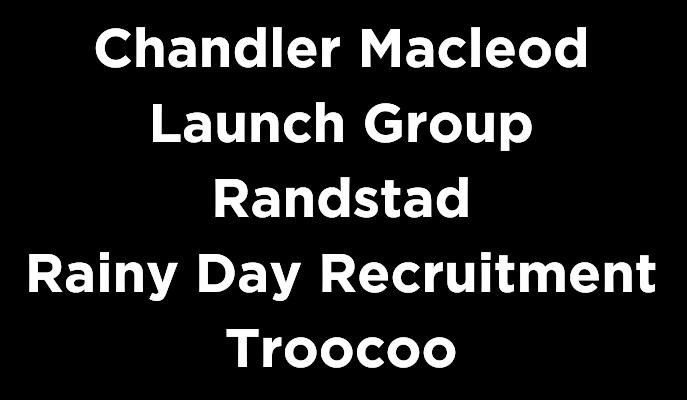



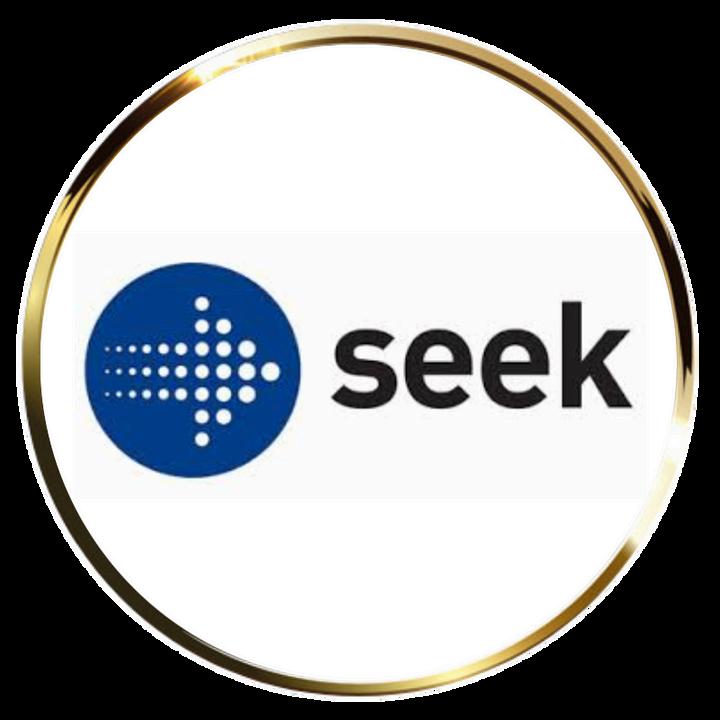

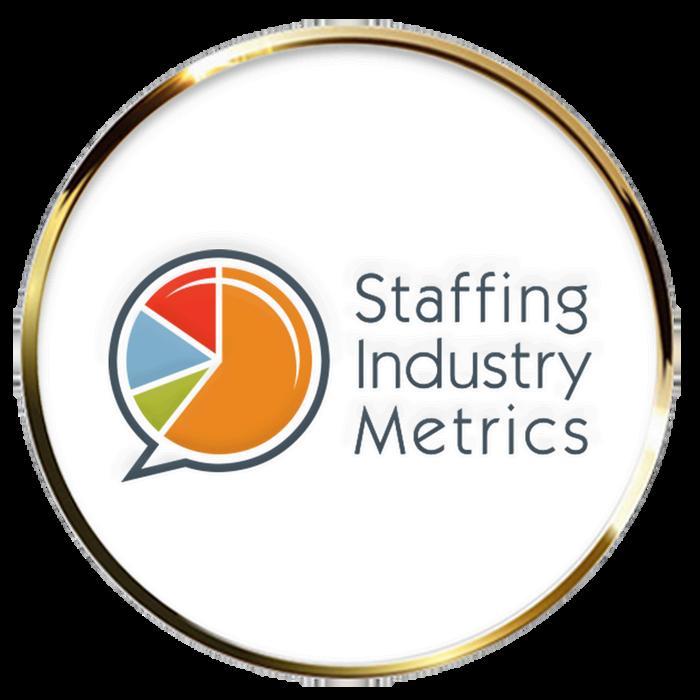


There is some truth in the old saying “tough times build tough people” and it is equally true for businesses. Many businesses starting during the pandemic may have undertaken the step into entrepreneurship during the peak of boom times with Government throwing cash into the economy like a professional gambler on the poker table.

John McCluskey Managing Director Whizdom APSCo Director
Interest rates were virtually nothing, money was cheap to borrow and there seemed to be no limits to what people would pay to secure talent, whether it made business sense or not.
Many recruiters may have over capitalised, borrowed, hired staff they would not have normally and paid them far more than they should have
Took advantage of ATO generosity of delaying paying taxes to invest in growth and living on what seemed an endless supply of generosity and opportunity available to business.
Candidates were king and demanding salaries and rate increases to reflect newfound lifestyles, working remote, having a flexible work life balance, getting offered 4-day weeks, extra leave and this was going to be the new norm
So, what happened? Basically, everything started to revert to the centre, and normalise.
The ATO wanted their tax, interest rates moved to move inline with long term averages.
Efficiency went down, so companies wanted people more in the office. With increases in efficiency and adoption of AI, organisations' business will need fewer people Suddenly, less money is flowing through the economy, with increased business costs, higher interest payments, increases in utilities, complex IR reforms, increases to state taxes and insurances, and suddenly, within 12 months, times are a little tougher.
Those companies that did not overextend and put a little away for a rainy day are probably travelling bit better and finding times like the GFC
If there is any good news it is there is more availability of good talent and more realistic salary and rate requirements from candidates.
Some businesses may continue to downsize, or the new term “right size”.
Don’t think this is a failure if it saves your business as upturns are like climbing the stairs and down turns are like going out the window
So tough and uncomfortable decisions can often be the right ones, if it’s the difference between opening or closing your doors.
In July, I had a pleasure of attending an APSCo members lunch to listen to Bill Simpson-Young of the Select Advisory Committee on AI regulation for Australia, and some of the opportunities ahead for our industry.

Anthony Whyte Managing Director
Talent International APSCo Director
It also included a fireside chat with Aaron McIntosh (Regional VicePresident APAC at Bullhorn) with Q&A opportunities and it got me thinking like most of the attendees
Artificial Intelligence (AI) has revolutionized the recruitment process by making it more efficient and effective for both candidates and recruitment companies
However, there are positives and negatives to consider when using AI in the recruitment world.
One of the biggest benefits of using AI in recruitment is that it can help to streamline the hiring process. AI tools can quickly analyse resumes and applications to identify the most qualified candidates, saving recruitment companies valuable time and resources
This allows us as an industry to focus on building relationships with candidates and clients, rather than sifting through numerous applications
For candidates, AI can help to match them with job opportunities that align with their skills and experience This can increase the chances of finding a job that is the right fit for them, leading to higher job satisfaction and retention rates
Additionally, AI can provide candidates with real-time feedback on their applications, helping them to improve their resumes and cover letters for future job opportunities.
On the other hand, there are also negatives to consider when using AI in recruitment. One of the main concerns is the potential for bias in the AI algorithms used to screen candidates.
If these algorithms are trained on biased data, they may inadvertently discriminate against certain groups of candidates, leading to a lack of diversity in the workplace
Another potential downside of using AI in recruitment is the loss of the human touch
While AI can streamline the hiring process, it may also lead to a lack of personal interaction between candidates and recruiters
This could make the process feel impersonal and discourage candidates from applying for jobs with a particular company
Many agencies have already implemented AI to do CV prepping; Job ad writing; interview question preparation and the like, but these are just the minimum basics.
In summary, the use of AI in the recruitment needs to be carefully worked through due to both positive and negative implications.
While AI can help to make the hiring process more efficient and effective, it also has the potential to introduce bias and reduce the personal touch in recruitment
It is important for companies to be mindful of these factors and use AI in a way that benefits both candidates and recruiters
I’m sure all of us in the industry have seen ageism at play. Clients asking for the ‘up and comer’, organisational cultures described as ‘young and vibrant’ and of course the most experienced (and often expensive) candidate on the shortlist not getting a 1st round interview because of the assumption that they aren’t as tech savvy as the other candidates.
The other obvious point to call out is that many recruiters in their first 5 years in the role are in the 20s and 30s age demographic themselves
How does their lens on life translate into defining the final shortlist for the role?
I have seen the real and damaging effects of ageism Having been in the recruitment industry for over 22 years, I have been able to follow both the joyous upwards trajectories of candidates, culminating in them achieving a pinnacle role, through to them struggling in more recent years, reflecting on the pinnacle role which has since evaded them as successors have come through.
Michael Page Australia Talent Trends 2024 report paints a stark picture 51% of Australian employees have faced age discrimination
That’s more than just a statistic; it’s a wake-up call that we need to address What can we do as an industry to move the dial on this?
But let’s not forget that ageism cuts both ways It’s not just older workers who suffer 46% of young professionals in their 20s report facing age-related bias
By sidelining any age group, we’re robbing ourselves of the fresh ideas and dynamic energy that young talent brings.
This isn’t just about fairness; it’s about harnessing the full potential of our workforce.
What are the steps we can take as recruiters?
Training sessions to really lift the level of understanding and awareness of bias (conscious and unconscious)
Sharmini Wainwright Senior Managing Director
Michael Page Australia

Avoiding age-specific language in job ads
Encouraging clients to assemble diverse interview panels
Challenging our clients at job briefing stage regarding their requirements which naturally cull the talent pool available Creating internal mentorship programs that connect different generations, to share knowledge and build stronger and more cohesive teams.
Remember, with life expectancy increasing beyond 100 years and a longer career runway, we need the world to also adjust and move with this.
The growing adoption of HR technology has transformed workforce management. However, these advancements can introduce cybersecurity risks if robust security measures aren’t in place, WorkPro writes.

Hiring teams handle vast amounts of sensitive information and are therefore a prime target for cyber criminals.
The shift to remote work during the pandemic further complicated cybersecurity, as employees often use personal devices and potentially less secure networks, increasing the vulnerability of personal and corporate data.
This makes it crucial for organisations to implement and adhere to strong remote access protocols and ensure all employees receive proper cybersecurity training
Privacy regulations impose strict guidelines on the collection, use and storage of employee data
Non-compliance can result in severe penalties, so all teams must collaborate to ensure data handling processes meet regulatory standards and are regularly reviewed.
Beyond technology and compliance, leaders must play a role in fostering a strong security culture.
From onboarding to ongoing training, ensuring employees understand the importance of security, including cybersecurity and adherence to company policies and procedures
A security-aware workforce is the first line of defence against cyber threats, reinforcing the organisation’s overall security posture
To secure candidate, client, and employee data, recruitment companies should adopt comprehensive data protection strategies:
Develop a Data Protection Policy: Set guidelines for collecting, storing, and accessing personal data, including security measures and an incident response plan
Limit Data Collection: Gather and maintain only necessary data
Regularly review and delete data in line with Government and company requirements.
Use Secure Platforms: Choose third-party software and confirm their security policy and procedures.
Train Employees: Provide regular training on data handling and secure communication. Ensure all employees sign confidentiality agreements.
Monitor and Audit Data Access: Implement strict access controls and conduct regular audits to ensure proper data management.
Obtain Consent and Be Transparent: Clearly communicate with candidates, staff and clients on how data is collected and handled Obtain explicit consent before processing data
At WorkPro, protecting sensitive data is a priority. Our recent ISO 27001:2022 accreditation emphasises our commitment to a rigorous security framework.
Additionally, we conduct regular security penetration testing to highlight vulnerabilities, and are in the process of developing an 'Identity Vault' to maintain secure document storage for all candidates, demonstrating our dedication to safeguarding user data against evolving threats
Even with a multitude of thirdparty integrations, we adhere to strict security relating to data exchange, aimed at minimising data breach risks, and maintaining our Government accreditation obligations.
As leaders in compliance management, we’re committed to keeping data safe and helping you minimise cybersecurity incidence with our approach.
This also includes cybersecurity training, which WorkPro subscribing customers can access as part of their eLearning subscription.
We invite you to explore our eLearning library, review our security and data handling policies, access online resources, and welcome you to contact us to learn more or to answer any questions.

The case of ALI and ALJ (Privacy) [2024] AICmr 131 sheds light on the scope of the employee records exemption under the existing Privacy Act 1988 (Cth) (Privacy Act) and reinforces employer’s privacy obligations to their employees. Gadens explains.
The case concerned an employer disseminating medical details to 101 head office employees about the health status of another employee who had suffered a medical episode at work
After the employee complained to the Office of the Australian Information Commissioner, the employer was held to have breached Australian Privacy Principle (APP) 6.1 which governs the use or disclosure of personal information under the PrivacyAct.
This came after the employer unsuccessfully relied on the employee records exemption within section 7B(3) of the Privacy Act which required the act or practice in question to be directly related to the employment relationship.
In order to receive protection under the employee records exemption of the Privacy Act, the employer’s act or practice must directly relate to its employment relationship with the employee in question An indirect, consequential or remote effect on the relationship is insufficient to enliven the exemption.
The words ‘directly related’ in the exemption are interpreted narrowly to mean ‘absolutely or exactly having connection’.
The fact that an employee’s personal information is already in the public domain does not relieve an employer of its privacy obligations in relation to the handling of that personal information. The circumstances of the individual matter are important when determining the employer’s primary purpose for collecting the information In cases of ambiguity, the Commission will apply a narrow construction to afford protection to the employee There is a distinction between the ‘use’ and ‘disclosure’ of an employee’s personal information. An employer will ‘use’ personal information by handling or managing the information within their own control, and will ‘disclose’ the personal information if it makes it accessible or visible to persons outside their organisation.
In these circumstances, the employer’s conduct would only have been permitted under the Privacy Act if consent had been obtained
If you found this article useful, you may read the full version here




In the current economic environment, we’re all familiar with rising costs across the board. Mark Farrugia, General Manager of Safe Scope dives into the rising costs of claims in the workers compensation space and provides insight into why this might be happening in your workplace and ways you can minimise these.
Claims costs on the up and up
Businesses regularly base an injured workers capacity for employment on certificates of capacity
The treating doctor issuing the certificates of capacity may not have an understanding of the return to work options available in your workplace Providing multiple suitable duties options assists the treating doctor in reviewing capacity This also supports your commitment to returning your injured workers back to work.
Organisations that are proactive in this space, especially those who engage with the claimant’s treating medical team, are achieving better outcomes through collaborating to reduce RTW times.
Insurers are reporting a sharp increase in mental health-related claims over the past five years Economic and work pressures are weighing on people, the recent pandemic and associated stressors can contribute to burn out
A recent insurer survey found that 48 per cent of employees felt fatigued in their jobs and more than one third were considering seeking a new role in the next 6-12 months
Given these contributing factors, culture and engagement, ensuring employees feel valued and acknowledging their unique contributions to the workplace is important
Proactive communication in regard to burn out prevention, mental health and wellbeing and creating a safety-focused culture where it is safe to discuss mental health challenges can all contribute to minimising the impact of future claims.
Engagement shouldn’t commence when a workplace injury occurs. Training of managers and supervisors to proactively seek opportunities to check-in with their team and assess their health and safety means that risks can be effectively managed
Risk mitigation
Ensuring your workplace is safe, and implementing risk management processes and procedures is only the beginning

Mark Farrugia General Manager Safe Scope
Building a culture of safety and raising awareness of mental health and wellbeing in the organisation are critical strategies to minimise risk.
Working with a workers’ compensation consultant can also support your organisation to effectively manage future claims
A consultant can provide expert advice on best-practice risk management and how to handle a claim or take on claims management on your organisation’s behalf
Safe Scope offers a multidisciplinary approach to workers compensation, with expertise spanning claims management, OHS/WHS and premium management.
How would you like to be treated?
Consider how you would like to be treated by your employer if you were injured and apply these considerations to your workplace’s approach
If you would like to speak with an expert, the Safe Scope team is here for you www safescope au
In an era dominated by AI, the recruitment industry today is looking out for innovative solutions that can help manage the ever-growing demands of candidates and clients effectively. The Access Group explains.
What if we told you, you could speed up candidate sourcing without missing talent?
With recruitment automation tools, the days of slogging through endless CVs are over.
These tools allow for quick, thorough screening, ensuring no potential candidate slips through the cracks, making your sourcing process not only faster, but smarter.
How Access Volcanic’s Chatbots keep you connected and competitive
Access Volcanic is breaking new ground with a bold move into automation, leading the charge into a new era of 24/7 conversational engagement
Our sophisticated recruitment Chatbot is transforming the way agencies communicate with clients and candidates, ensuring every opportunity is captured.
24/7 Engagement
Our intelligent chatbots empower recruitment agencies to be proactive, not just responsive. They provide seamless engagement with tailored responses, ensure every interaction captures your unique brand voice and build lasting connections
Preserve the lifeline of your business with flawless data accuracy Our Chatbot isn't just a communication tool; it’s a steward of your database, continuously updating and verifying information to arm you with the most accurate insights for smarter decisionmaking.
Maximize time and cost efficiency with our Chatbot. By automating mundane tasks, we minimize overheads and free up your team to focus on what truly matters nurturing relationships and closing more deals It's about amplifying productivity and enhancing quality
Access Volcanic’s Chatbot enhances website interactions and optimizes operations, providing a scalable solution that evolves with the recruitment industry's fluctuating demands, all without additional expenses.
AI tools for inclusive recruiting
Our groundbreaking job advert bias analyzer is transforming job ad creation, promoting diversity by helping you strip away biased language and offering inclusive alternatives.
This tool doesn’t just adjust words it unlocks opportunities, proven to boost the diversity of applicants by up to 70%.
Think about it. Why spend hours on tasks a bot can handle when you can focus on what really moves the needle? Ready to transform your recruitment approach with our cutting-edge tools? Contact our software specialists today

At Recite Me, we are committed to creating an inclusive digital world for all. With a selection of products to enhance accessibility online, the Recite Me Assistive Toolbar offers a range of tools to enable website visitors to customise their content in a way that works for them
To improve our assistive toolbar, Recite Me is thrilled to announce the launch of our latest feature product “Focus Text”.
Navigating online content can be challenging for individuals with diverse needs That’s why we’ve developed Focus Text, an innovative tool designed to enhance readability, and comprehension, and elevate the browsing experience for everyone
Focus Text leverages the brain’s natural ability to recognise word shapes and patterns quickly
This is done by emphasising the most critical parts of words, guiding the eyes smoothly through the text.
This method improves reading speed and comprehension, making online content more accessible to those with dyslexia, ADHD, and other reading challenges.
By highlighting key parts of words, Focus Text helps users process information more efficiently and with greater ease
Research has shown that this technique can increase reading speed by up to 27% and improve comprehension by up to 20%
Focus Text improves comprehension by guiding the eyes to the most informative parts of words, helping readers grasp sentence meanings more effectively.
This leads to better retention and enhanced learning, making it particularly beneficial for students and professionals who need to quickly absorb new information.

Focus Text can be especially helpful for individuals with reading difficulties by increasing accessibility and reducing cognitive load and visual stress, thereby creating a more inclusive reading environment where more people can enjoy and benefit from written content
These techniques have been reported to enhance comprehension for individuals with dyslexia by as much as 25%
In addition to its unique reading enhancements, Focus Text integrates seamlessly with our existing features Users can still enjoy our screen reader functionality, listening to content aloud with the added benefit of Focus Text’s structured emphasis.
This feature also supports translation into Latin alphabet languages, ensuring international accessibility.
Recite Me also offers an Accessibility Checker that helps to address inaccessibility at its root cause
The tool performs a complete scan of your website in line with the latest WCAG standards and guidelines
A trend PGC have witnessed is an uptick of Australian recruitment agencies extending their service offering by recruiting within the USA via our Employer of Record solution. This article explains why.
Earn More Revenue in the World’s Largest Recruitment Market
The US staffing industry generated $191 1 billion in 2023, which represents over 30% of the global recruitment market
In comparison, Australia's staffing market brought in $32 3 billion, highlighting the revenue opportunities in the US
Double Your Markups in the US
Everything’s bigger in the US, including US salaries, which means higher markups.
Our clients tend to see fees between 25-45%. For example, the average US tech salary is $104,566, meaning Australian recruiters can receive $26,141-$47,054 per worker
Shorter US Notice Periods, Quicker Fee Turnaround
Unlike Australia, the US has at-will employment, where an employer or employee can end their contract with short notice
For Australian recruiters, this means candidates are available quickly, allowing you to earn fees within the same month as placements
US Leads in Recruitment Most Sectors Globally
The US economy leads in almost all major industries, making it home to top talent and companies
If you're already recruiting in Australia’s tech sector, consider US hot markets like Silicon Valley or Austin. If finance is your focus, New York is a top spot for finding and placing the best finance talent.
US States Reduce Reliance on Single Markets
Having a US division gives Australian agencies a cushion during slower economic periods
The 50 states operate as different economies Therefore, if there is economic instability in one area, you could diversify by recruiting talent within another
Grow Your Recruitment Company Valuation by Expanding into the US
Global recruiters expand to the US to grow their agency's valuation At PGC, we've seen that global reach reduces reliance on local clients and attracts investors Faster US contractor payment terms can also increase business cash flow, making your business more appealing
Expand to the US With
For Australian recruitment agencies looking to grow, the US is a smart next step.
Many successful Aussie agencies are doubling their margins by recruiting in the US from home.
Using PGC’s Recruit from Afar model and solution to engage and payroll US contractors, you can test the US market without the costs of physical expansion
Schedule a US market training session with PGC to learn how to get started
Contact details: Email: sales@pgcgroup com Wesbite: pgcgroup com
In the recruitment industry, business often mirro economy. When the economy booms, so does th top talent. But when there’s a lull, it’s easy for re companies to find themselves in a quiet spell—a feeling that now. Colin
Cuthbert
of EOS Worldw
While this might feel like a setback, it could be the perfect opportunity to make a few tweaks to your business that will deliver some big results in relation to engagement and profit.
Right now, there is a chance to refine your approach, strengthen your team, and ensure that when the tide turns, you’re not just back in the game you’re leading it!
Right People, Right Seats: The key to a booming recruitment agency!
One of the most significant shifts you can make in your business strategy is ensuring that you have the right people in the right seats It’s a concept that might sound simple, but in practice, it’s a game-changer
Too often, recruitment firms hold onto the wrong people for the wrong reasons.
Whether it’s a top biller who’s more of a lone wolf than a team player or an employee who no longer aligns with your company’s values, these types of people can quietly undermine your agency’s success.
Leadership in today’s ma about more than just hit numbers it needs to be purpose and values
If your team is only drive commissions, the purpose behind their work might be hollow.

But when your team understands the ‘why’ behind what they do, they’re connected on a deeper level, no more so than during a downturn when morale might be low.
Strong company values aren’t just motivational posters on the wall with pictures of people looking to the horizon with their hands in the air they’re decision-making tools
With clear values, you will hire, fire, reward, and recognise your team members in ways that align with your company’s true purpose
This alignment doesn’t just avoid confrontation; it fosters a culture of respect, transparency, and mutual growth… ultimately it builds engagement with your staff; they will not only enjoy work more, but they will have a sense of fulfilment from their work… which is an addictive and very powerful thing!
Colin Cuthbert Professional EOS Implementer
Take, for example, the highperforming biller who prefers working from home Sure, their numbers are great, but are they contributing to the team’s growth and company culture?
When values like respect and transparency guide your decisions, you can have conversations that shift focus from individual preferences to the company's greater good.
Trust me, if that high biller is the wrong person, the rest of the team will not only fill their shoes Should they leave (or be asked to), they will surpass those numbers in a surprisingly short time – I have seen it over and over again
It’s not just about having people in seats it’s about having the right people in the right seats And that’s where the true potential of your recruitment business lies
If you’re ready to align your team with your company’s values and purpose, let’s have a quick chat.
Together, we can position your business to not just survive but thrive no matter what the economy throws your way.
Contact details: colin cuthbert@eosworldwide com Mobile: 0451 130 180
Mercury has formed a strategic multi-year alliance with Microsoft. This partnership promises to bring significant benefits to Mercury’s clients, enhancing their recruitment processes through the power of Microsoft’s Cloud and AI technologies. Here’s a closer look at what that means for Mercury clients.
The partnership between Microsoft and Mercury leverages advanced AI technology to make recruiters significantly more effective
This technology bridges skills gaps by assisting with generating job ads and candidate summaries as well as enhancing the search criteria, helping consultants identify and match candidates with the precise skills required for job openings.
It reduces administrative burdens by automating routine tasks, allowing recruiters to focus on high-value activities Additionally, AI minimises the “thinking time” by providing data-driven insights and recommendations, guiding recruitment consultants to their next best actions
This means recruiters can work more efficiently, make betterinformed decisions, and ultimately deliver superior results for their clients.
Our innovative technology enables recruiters to use their databases more effectively by leveraging candidate information to uncover connections and networks that might otherwise go unnoticed
This powerful tool highlights potential hires from within their network, past work history, or those with similar backgrounds and interests, capitalising on the tendency for people to hire individuals they share connections with.
By doing so, Mercury not only helps fill vacancies and job orders more efficiently but turns the process around, enhancing business development by placing individuals into roles that are wellsuited for them, enhancing your recruitment success
One of the primary advantages of this partnership is the dramatic improvement in recruitment efficiency.
By integrating Microsoft’s cutting-edge AI capabilities, Mercury’s platform is able to process vast amounts of data quickly and accurately
This means that recruitment agencies using Mercury’s platform can expect faster and more precise candidate matching.
As a result, fill rates will improve while the number of candidate submissions needed for each position will decrease significantly.
The partnership is delivering tools that help streamline operations for Mercury’s clients
With automated workflows and enhanced data integration, recruiters can focus more on personal interactions and building relationships rather than getting bogged down in manual processes.
This operational efficiency will save time and improve the overall experience for both recruiters and candidates
Microsoft’s cloud computing services and tools like Teams enhance collaboration for recruitment agencies.
By removing data barriers and enabling seamless communication between coworkers and clients, recruiters will be able to work more cohesively
The alliance provides dedicated AI processing capacity for Mercury clients, ensuring that AI tools are delivered swiftly and efficiently
This dedicated capacity means that recruiters will experience faster processing times for advanced AI capabilities.
This speed enhancement ensures that tasks such as candidate matching and data analysis are performed quickly.
This partnership positions Mercury’s clients at the forefront of digital transformation in the recruitment and staffing profession.
By leveraging Microsoft’s leadingedge AI and cloud technologies, Mercury is introducing innovation that will redefine staffing practices.
Clients can look forward to tools that increase consultant capacity, make them more effective and significantly improve fill rates
For more information on the partnership, you can read the full press release here

A little over a year has now passed since Government’s “Secure Jobs, Better Pay” flexible working arrangements (FWA) b Squire Patton Boggs writes.
Of all the changes, the introduction of a dispute resolution process was particularly significant (and controversial), as an employee’s ability to request an FWA had previously been specifically excluded from the Fair Work Commission’s (FWC) dispute resolution processes under the Fair Work Act 2009 (FW Act)
Many employers and business groups expressed concern at the time these changes were announced, fearing that they may be flooded with applications from employees hoping to have decisions refusing requests for FWAs overturned, including requests involving working from home.
So, what is the state of play a year later? Is there a trend of employees successfully challenging employers’ decisions, or is the FWC supporting employers’ right to refuse an FWA request on reasonable business grounds?
A review of some the FWC’s recent decisions paints an interesting picture

Effective from 6 June 2023 provisions in the FW Act w amended to:
expand the circumstanc which an employee may an FWA; increase the employer’s obligations when consid employee’s request Specifically, an employer cannot refuse an employee’s request unless:

the employer genuinely tried to reach an agreement with the employee about making alternative arrangements to accommodate their circumstances;
the employer had regard to the consequences of the refusal for the employee; and
the refusal is on “reasonable business grounds”; and
introduce dispute resolution provisions that empower the FWC to make orders where an employer refuses an employee’s request


Some recent decisions highlight the FWC’s approach to resolving FWA disputes, notably, when an employer is considered to have “genuinely tried” to reach a compromise and what constitutes “reasonable business grounds” for refusal.
Shane Gration v Bendigo and Adelaide Bank Limited (2024) FWC 717
Mr Gration applied to the FWC after his request to work solely from home was refused. Mr Gration argued that he needed to work from home because he was the carer for his wife who had sustained a serious foot injury and responsible for the care of his school-aged daughter
Bendigo Bank refused Mr Gration’s request as it had already adopted a hybrid working model (while encouraging employees to work in the office to meet the needs of the business and provide opportunity for meaningful team connection). Bendigo Bank also offered to allow Mr Gration to work from home or take carer’s leave if he needed to provide care for his daughter.
The FWC found in the employer’s favour, finding that it could not conclude on the evidence that Mr Gration was a carer within the meaning of the Carer Recognition Act 2010 (Cth)
It also found that the bank’s offer of an alternative arrangement was an appropriate response and there was no need for him to work permanently from home As the Commissioner stated, “The Employment relationship is a twoway street ”
The Police Federation of Australia v Victoria Police/Chief Commissioner of Police (2024) FWC 1631
This application, which was lodged by the Police Association on behalf of Senior Constable Beaumont, involved a request to perform eight 10-hour shifts per fortnight on the basis that he was over 55 year of age and needed to care for his elderly parents
Victoria Police refused this request and offered an alternative arrangement (a blended roster of four 10-hour shifts and five 8-hour shifts per fortnight) This offer was rejected by Beaumont
The FWC ultimately held that Victoria Police had reasonable business grounds for refusing Beaumont’s FWA request because:
as police officers worked in pairs and since other officers operated on 8 hour-shifts, it was reasonable for Victoria Police to reject Beaumont’s proposal in order to maintain productivity in accordance with the applicable enterprise agreement; and
as his proposal would result in the loss of up to two operational shifts per fortnight, this had the potential to create a service delivery problem
Notably, the FWC also encouraged Beaumont to reconsider the alternative offer of a blended roster, with the commissioner stating, “a part-way compromise is still better than nothing at all."
Ambulance Victoria v Natasha Fyfe (2023) FWCFB 104
This was an appeal from a decision that predated the changes to the FWA provisions
In the initial decision, Ms Fyfe, a paramedic, requested to amend the start and finish times of her night shift hours pursuant to her right to seek an FWA under her enterprise agreement, so she could care for her three young children
Ambulance Victoria refused this request on the grounds that a shortened night shift did not exist, they were unable to accommodate shift start/finish times outside of the team roster configuration, and there was insufficient resourcing in Ms Fyfe’s area to accommodate the request In the first instance, the FWC rejected Ambulance Victoria’s argument This decision was challenged on appeal
In applying the newly introduced FWA provisions, the FWC upheld its initial decision.
The FWC found that Ambulance Victoria lacked reasonable grounds for refusing the request, noting that it did not attempt to meet or hold discussions with Ms Fyfe before confirming its decision
The FWC also observed that the reasons provided for refusing the request were relatively trivial, likening Ambulance Victoria’s explanation that the service area could not provide start and finish times outside the roster configuration to the Little Britain catchphrase, “Computer says No”
These decisions show that the FWC is prepared to uphold an employer’s right to refuse a request on reasonable grounds, particularly if the request involves a significant change in working arrangements (such as solely working from home)
However, these grounds must be valid, explained in detail and conveyed clearly to the employee.
Further, these decisions illustrate the FWC’s focus on the “two-way street” nature of the employment relationship
This means employers must genuinely try to accommodate the employee’s needs by offering alternative arrangements where a request cannot be fully accommodated, and employees must be willing to compromise where possible.
To minimise the risk of disputes being escalated to the FWC, employers need to ensure employee FWA requests are handled appropriately within the business
Some key takeaways include: ensure there is no blanket “say no” approach to requests for FWAs. Employers should consider whether their FWA policies and/or procedures need to be updated to set clear guidelines on when the employer may refuse a request on “reasonable business grounds”; if a FWA request cannot be fully accommodated, consider whether an alternative arrangement can be made that takes into account an employee’s individual needs and circumstances; and ensure there is a clear process within the business for engaging with employees to discuss any alternative arrangements.











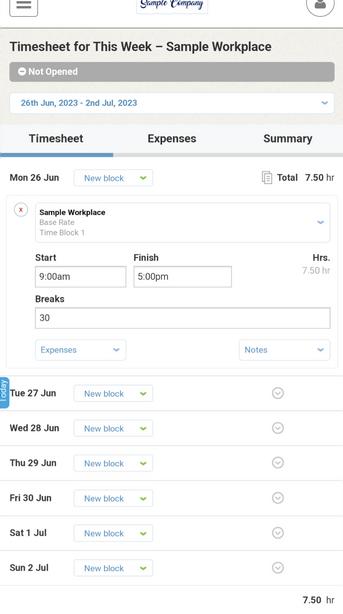









Sleep is important – we all know it. But just how important? Certex writes
A report by the Sleep Health Foundation, details the burden sleep deprivation has on the Australian economy, as well as cost per individual.
We can save so much financially if we make a concerted effort to get enough sleep. You will lose if you do not snooze.
Workplaces Waking up to the
It is not just the dollars that are important Sleep takes up a third of our life, but many people do not value it as much as they should
Fatigue in the workplace compromises physical and mental health, safety, and performance
This is especially important in industries where fatigue-induced errors can be deadly – consider frontline workers or machinery operators.
It is up to YOU to ensure your lack of sleep does not contribute to health and safety risks in the workplace, both for yourself and those around you.
Workers have a responsibility to take reasonable care of their health and safety. This includes ensuring they are sufficiently rested to do their job.
Safe Work Australia’s two-page guide provides practical advice for workers on how to manage fatigue.
Workplaces have a legal obligation to manage fatigue risks
1 Identify hazards and assess risks by consulting with workers
2 Control risks
Minimise the risk of fatigue in the workplace, so far as is reasonably practical Examples of control measures:
Schedule safety-critical work outside low body periods (26am, 2-4pm)
Restrict number of successive night shifts
Structure shifts so that work demands are highest in the middle
Implement a workplace fatigue policy Open communication is crucial. Managers should foster a culture where workers feel comfortable raising issues around fatigue and do not feel pressured to work when they are exhausted.
3. Review hazards and control measures
Consider trial phases for new work schedules or job designs and encourage workers to provide feedback
What Steps are You Taking to Manage Fatigue Risk?
Fatigue may not be the most obvious WHS hazard, but it is nevertheless costly if overlooked. All businesses should implement psychosocial risk management plans. However, it can be overwhelming, unfamiliar territory.
That is where Certex can help!
Through our iSuite and Risk Assessment Program, Certex’s experienced team of experts can help identify systematic hazards in your workplace, so you can then do something about them
Compliance with laws and regulations is essential to the success of any business, but for SMEs in the recruitment industry, it can be particularly challenging due to limited resources and expertise.
In this article, we look at some strategies that can used to deal with regulatory compliance in Australia
Be clear on your regulatory obligations
Understanding the regulatory landscape is the first step in dealing with regulatory compliance
SMEs in the recruitment industry must be aware of the laws and regulations that apply to their industry and business operations.
This includes anti-discrimination legislation in the Fair Work Act to protect candidates in the screening process, and legislation in the Privacy Act 1988 to ensure security of candidate information
Gaining an understanding of these regulatory obligations can involve seeking professional advice, conducting research and consulting with industry associations
Develop a compliance checklist
Developing a compliance checklist that outlines your business’s obligations for meeting regulatory requirements from
ASIC, ATO, employment law and specific industry requirements can assist you in meeting all requirements
The checklist should include all obligations, allocate responsibility and timing for each step
Keep up to date with regulatory changes
Recruitment companies need to stay up to date with any changes that may affect their business.
They can do this by subscribing to regulatory alerts, attending industry conferences and networking with others in the industry.
Train employees
Businesses in the recruitment industry need to provide training and education to employees on compliance issues to ensure they keep up to date with current requirements
They can achieve this by conducting regular training sessions, providing resources and guidelines and promoting a culture of compliance within the organisation.
Scott Harrington Partner, Business Advisory William Buck

Consider having an audit of compliance
SMEs may consider having an audit or review to ensure they are meeting regulatory requirements
This can be done by reviewing policies and procedures, monitoring compliance and identifying areas for improvement
Embrace technology
Technology can be a powerful tool for managing regulatory compliance.
Recruitment companies can use software and automation tools to monitor compliance, track changes in regulations, and ensure that employees are following policies and procedures
Dealing with regulatory compliance is a significant challenge for SMEs in the recruitment industry in Australia
However, you can ensure your business stays on top of things by following these strategies
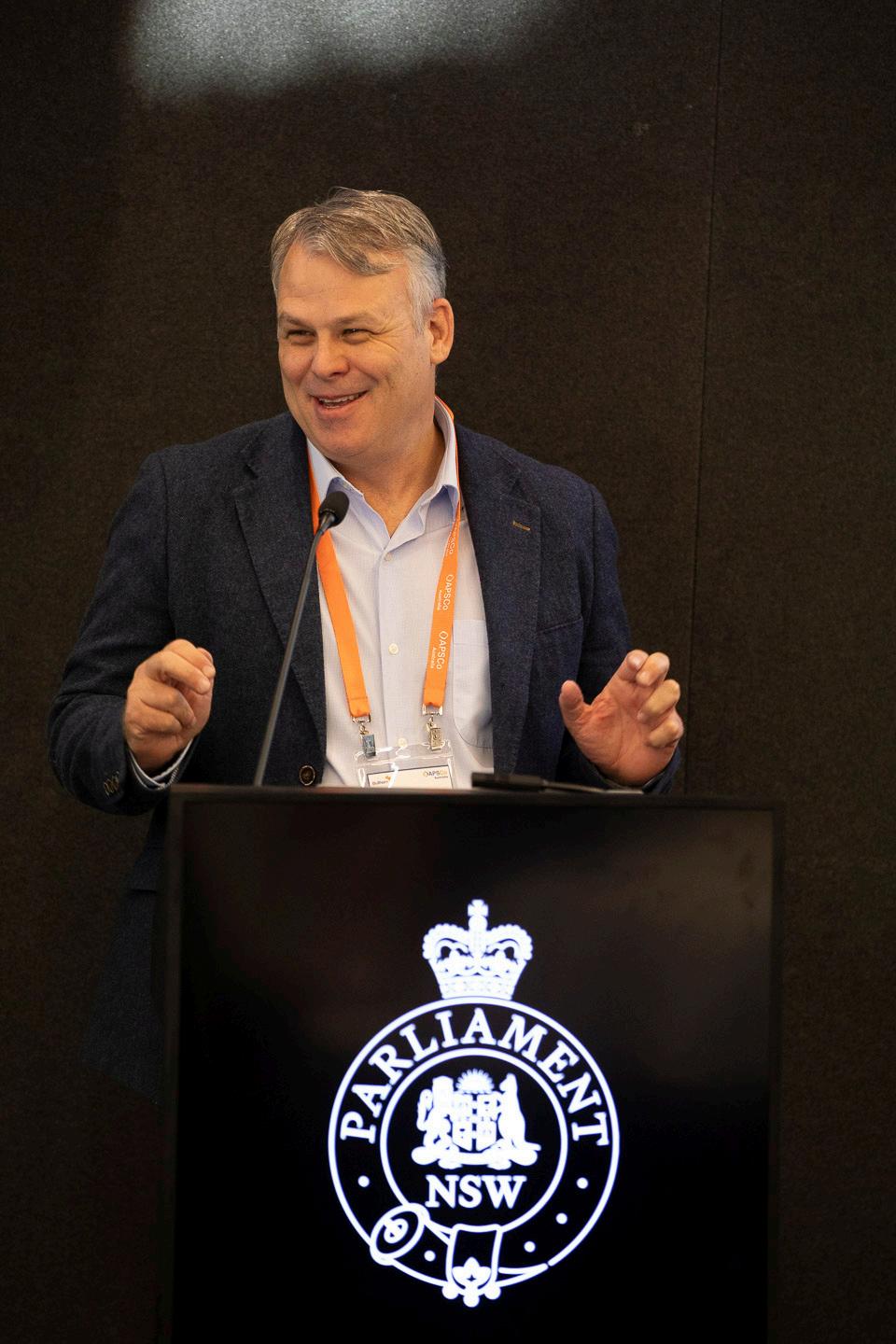
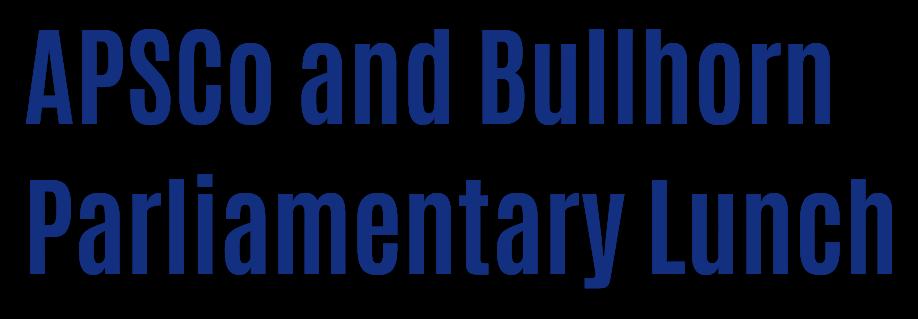

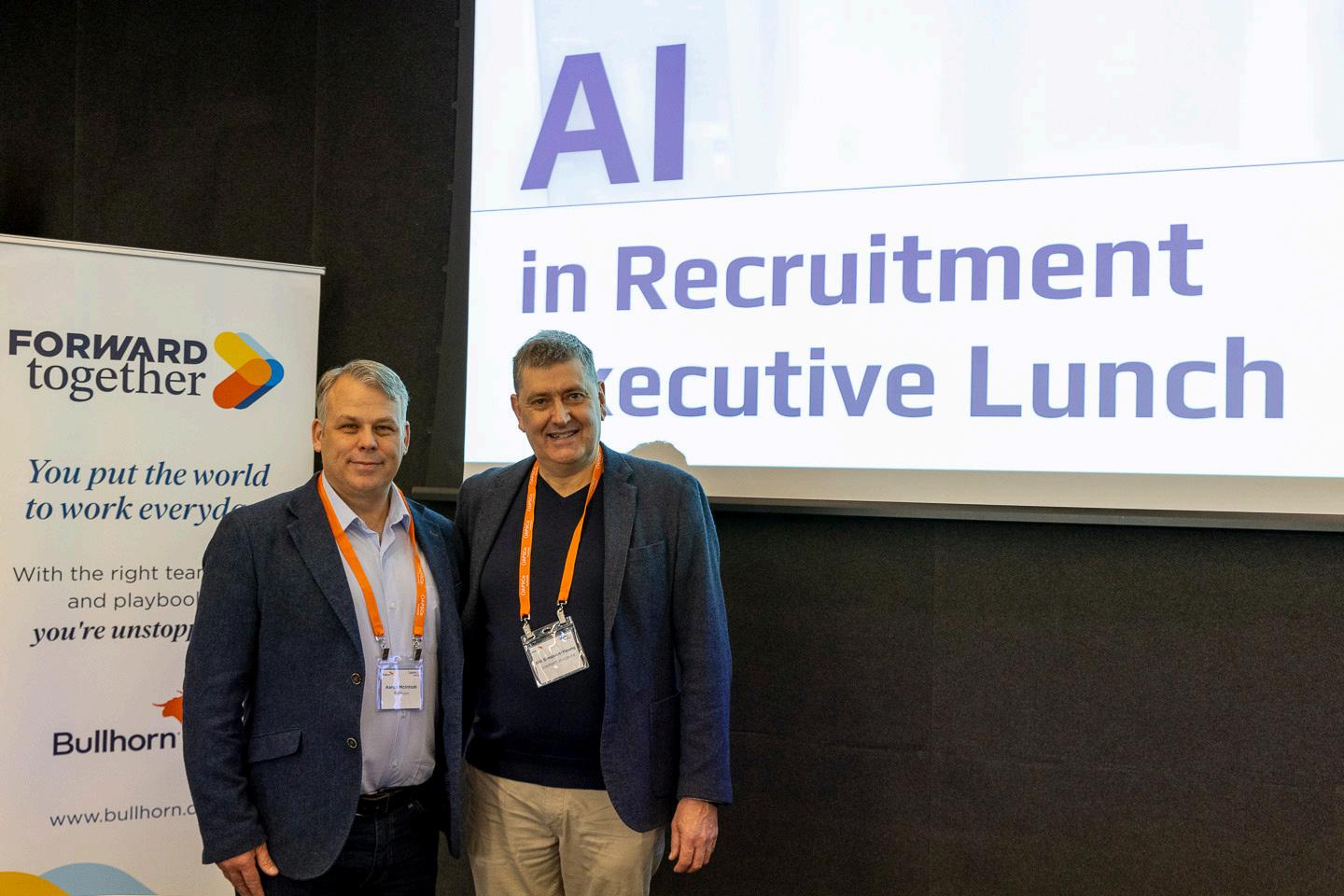
In July, APSCo, in partnership with Bullhorn, hosted a parliamentary lunch with guest speaker Bill Simpson Young from the Select Advisory Committee on AI Regulation for Australia.
APSCo members had the opportunity to hear Bill speak on the future of AI and its potential impact on the recruitment industry.
The event also included a fireside discussion with Aaron McIntosh, Regional Vice President APAC at Bullhorn, and an engaging Q&A session.








